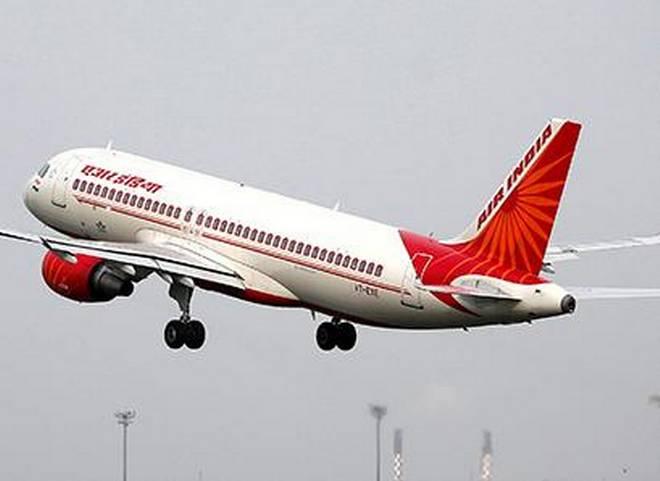After Talk Of ‘Revival’, Modi Government May Sell Off Air India Entirely

Image Courtesy: The Hindu
Now that the Narendra Modi government is set to begin its second term, it seems in a hurry to dispose of unfinished business from its previous term — for example, the privatisation of the country’s embattled “national carrier” Air India (AI).
As expected, it is reported that the government is likely to divest 100% of its stake in the country’s only public sector airline, which failed to find buyers last year.
The development comes months after the previous Bharatiya Janata Party-led National Democratic Alliance government had announced a “revival” plan for debt-ridden Air India last November — a sham and a stop-gap measure as it waited for the 2019 elections, as Newsclick had said at the time.
Also read: Air India ‘Revival’ Plan Is A Sham — Govt Waiting to Let 2019 Elections Pass
In fact, according to Business Standard, the new Expression of Interest (EoI) to invite the bids for buying stake in AI — which last time had drawn zero interested bidders — could be issued within a month’s time.
“The civil aviation ministry and the Department of Investment and Public Asset Management (DIPAM) in the finance ministry are already on the job,” it says.
It was reported on May 24 that, following a high-level meeting at the Prime Minister’s Office (PMO), Civil Aviation Secretary Pradeep Singh Kharola had sent a letter to AI, asking it “to finalise the financial accounts of the airline and its subsidiaries” for 2018-19 by the end of June.
“It was inter alia decided to speed up the process of disinvestment of Air India and its subsidiaries,” said the letter, according to the Business Standard. Consultancy firm Ernst & Young (EY) has been retained as the transaction advisor for the Air India sale.
Air India has a debt burden of around Rs 55,000 crore, on account of deliberately destructive decisions of earlier Congress-led UPA governments — mainly, the buying of excessive number of aircraft, merging AI with domestic carrier Indian Airlines (at a time when both were profitable and market leaders), and giving away of lucrative international routes (such as the Gulf routes) and slots to private and foreign airlines.
Also read: Air India Sale: How To Systematically Kill A Public-Sector Company
On March 28, 2018, the Modi government had announced the sale of 76% equity share capital of AI held by the Government of India — along with 100% equity stake in AI’s subsidiary, Air India Express Limited, as well as the 50% equity stake in joint venture AISATS that Air India has.
But no buyer turned up — even though the Modi government sweetened the deal for prospective buyers by vowing to bear 50% of the debt through hiving off non-core real estate assets and other businesses, not integral to the core airline business, into a Special Purpose Vehicle (SPV) to be owned by the GoI.
These other subsidiary businesses include the Air India Air Transport Services (AIATSL), Air India Engineering Services (AIESL), Airline Allied Services, and Hotel Corporation of India.
The failure of the sale was attributed by industry analysts to the huge debt burden as well as the fact that the Government of India would have continued to retain the residual 24% share in the company.
Now, even as nearly half the debt (around Rs 27,500) remains hived off, the government is more than likely to sell off its entire stake in Air India.
As the Business Standard report says, one of the options being discussed is to sell 95% of the stake and retain 5% for employee stock options (ESOPs). However, the ESOPs would be offered to employees only with the assurance of one year’s job continuity after privatisation. AI has over 27,000 employees, around 40% of whom are permanent.
In fact, it is likely that the government will be forced by the players private to take on more debt, as Newsclick had said. Indeed, “the market sources said a further reduction in debt was necessary to generate interest,” says the Business Standard report.
Also read: Will The Modi Government Crawl To Sell Off Air India?
“When prospective bidders take a decision on buying Air India, they will see if the revenue from operations will be able to take care of paying the annual interest on the debt. At Rs 27,500 crore, it still looks on the higher side. The government needs to take a haircut,” it quoted the executive of a company that had considered bidding for AI last year.
Further, the government is looking to sell off the airline’s subsidiaries before the airline itself, in order to partly settle the outstanding debt.
The EoI for ground-handling subsidiary AIATSL has already been issued, although the process was held up due to elections. But the sale is likely to be completed successfully soon. The next subsidiary to be sold is likely to be the airline’s engineering arm AIESL, a profit-making company.
The privatisation of Air India will leave the country without a single government-owned airline and will result in the monopoly of private companies in the air travel market. Among other things, it would be impossible to keep a check on the prices of private players in the absence of any public-sector airline. And given that private companies operate with the sole motive of maximising profits, who would service the loss-making routes that connect some of the remotest areas in the country? Even if the private players do, they would cost a bomb.
Get the latest reports & analysis with people's perspective on Protests, movements & deep analytical videos, discussions of the current affairs in your Telegram app. Subscribe to NewsClick's Telegram channel & get Real-Time updates on stories, as they get published on our website.























